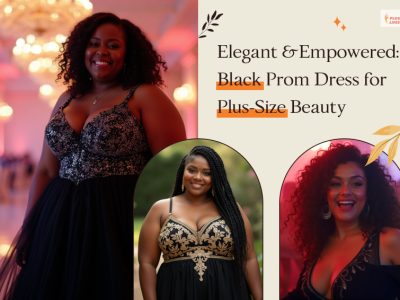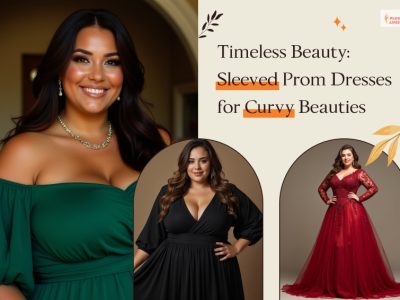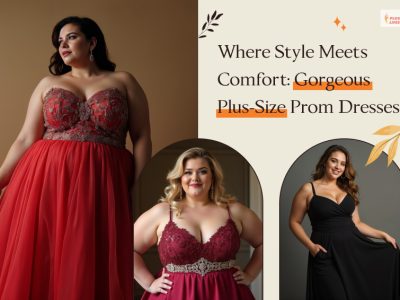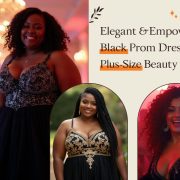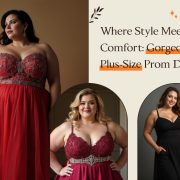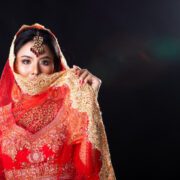“In a world where you can be anything, why not be fashionable?” We all have come across this statement at least once in our lives. This way of self-expression is at its highest point of being mainstream.
However, the meaning of body positivity in fashion has always been prejudiced. People cannot get over the 36-24-26 stereotype.
When I was a kid, I remember looking at advertisements featuring tall, thin, and fair-skinned girls. I always used to think, “What if I never turn into one of those? Will I never be good enough for the world?”
If you are someone like me who can relate to these words, I’m pretty sure you would have a piquing interest in fashion and body positivity.
Buckle yourself up to get over airbrushed smooth arms, legs, and even tans. In this article, we are talking about imperfectly perfect beauty and how the fashion world can help break down stereotypes.
Let’s see what the world thinks of fashion…

A study by Peer J discovered that “only 4% of females in the world consider themselves beautiful.”
This predicts that only 158000000 women out of 3.95 billion find themselves perfect according to conventional beauty standards. This nugget of information acts as a glaring testament to the contemporary narratives within the constructs of societal beauty.
Another self-esteem project carried out by Dove revealed that out of 10 women, only 8 opt for activities highlighting their body curves. Others do not take part because of low confidence.
All these statistics are enough to prove how little women think of themselves. Well, you would be shocked to hear men’s opinions on fashion and body positivity. While that’s something we are yet to discuss, let’s quickly take a look at what the world considers fashion.
When it comes to body inclusivity, a lot should be learned from plus-sized bloggers on Instagram. Take Jessica Torres, for example.
This unapologetically Junoesque fashion blogger has seen her fan following rise dramatically ever since she started making her style statements. In one of her Instagram pictures, she quotes a user’s comment on her body shape while answering the question.
“It really confuses me when fatness turns into a moral issue #fatophobia…”
Apart from her stylish avatars and outfits that the world could only dream of, there has been criticism related to her body figure.
Models entering into the world of glamour have traumatic experiences when there are discussions about “shedding their weight” and “how slick a body part should be.”
How Body Neutrality Centers Around Venomous Positivity and Shame?

Every 90’s magazine skimmer is incapable of escaping the plague of heroin-chich aesthetic where Kate Moss and other models were on edge.
Just when the world thought fashion could be more body shape-centric, Kardashians made room in their pop culture milieu.
And then came Paloma Elsesser and Ashley Graham, who took the fashion world by storm with their sheer presence and body-positive modeling.
In the book “All About Love,” a feminist author pointed out how body neutrality is a central ground between shame and toxic positivity. She adds,
“When we can see ourselves as we truly are and accept ourselves, we build the necessary foundation for self-love.”
A study conducted by Sonia Renee Taylor, a black body-positive activist, points out that movements for specific body types can never be body-positive movements.
This came to light when critics began lamenting the usual, dominant norm for body positivity.
I recently conducted a survey with 10 people and asked them whether they have faced body shaming in some form or another. 9 out of the 10 respondents replied yes, and the most common terms they heard were fat, chubby, super thin, and bulky.
Times When The Fashion World Took Us Down With Body Immorality: Instances To Highlight It All!
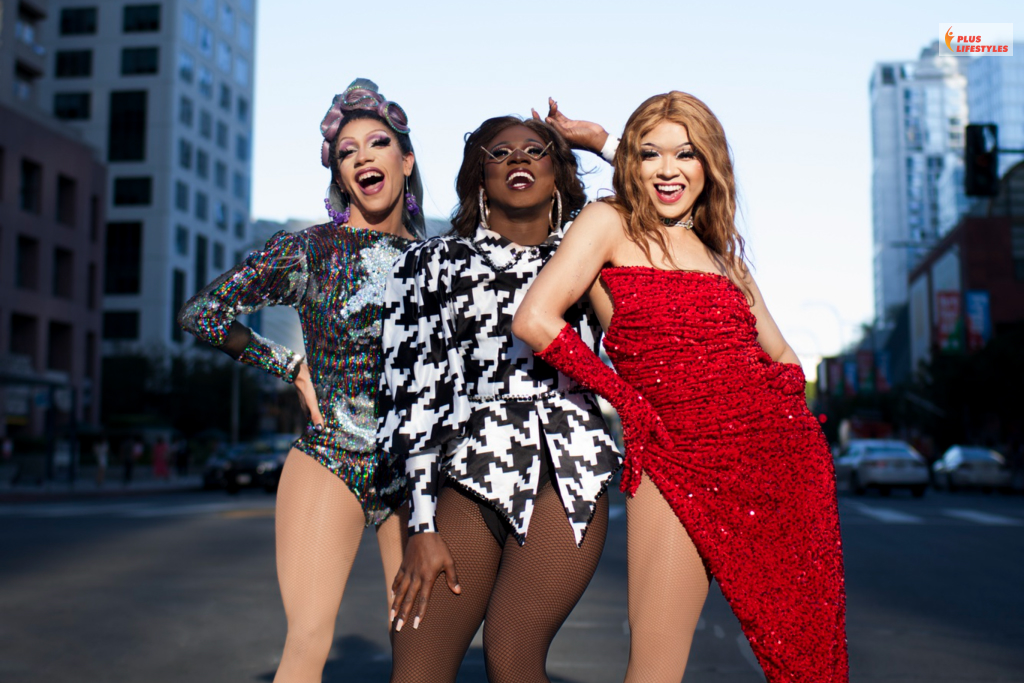
The outfits we wear every day might seem like a piece of cake when seen through a normal vision. However, perception changes completely as soon as you enter the world of fashion.
Statistics prove that more than 94% of teen female models have experienced body shaming as compared to 65% of their male counterparts. Not only does body toxicity have an impact on mental health, but it also brings down confidence.
Time and again, netizens have targeted celebrities for their weight gains or body changes. Let’s delve deeper into the times when the not-so-glamorous world took down our expectations:
1. Ariana Grande
The “My tongue is sacred, I speak upon what I like” star had got fans going gaga over her. But you would be surprised to know that even she had faced backlash for body changes.
After paps followed her in London for some time, she was found quoting,
“I think we should be gentler and less comfortable talking about people’s bodies, no matter what…”
This is a good illustration of how the fashion world and the society we thrive in spares nobody, irrespective of their fame.
2. Selena Gomes
Just when the news of Selena Gomes’s and Justin Bieber’s breakup hit the world, both celebrities started gaining much attention. But things have never been easier for Gomez since 2013.
She was diagnosed with another autoimmune condition, Lupus, which left her to take continuous chemotherapy. Not only did this have an impact on her mental health, but also she started gaining excessive weight.
And what was next? She got severely trolled by some of her fans! As per a Page Six report, she clearly stated that she isn’t a model and that she “never will be.” The TikTok live in which she was featured received tons of views and likes, so much so that more than than 1.7 million people viewed it.
3. Nadile Abdel Aziz
This social media influencer with a tall and skinny physique has continued to talk about body positivity. She says, “I have a fast metabolism, and as growing up, I was a non-stop eater…”
When asked how she finds the perfect outfits for her body type, she adds that snug and tailored outfits are ideal for her hourglass body. Having that perfect body is also overwhelming because there’s constant pressure to maintain it properly.
A bit of junk and boom, you gain 2 kilos. The concept of an ideal body has left nobody without stress. Nadile says there is no “perfect body” in the world. It’s how we perceive it!
4. Rhea Jacobs
The Mark Jacobs Beauty Ambassador has gone a step ahead in changing the way beauty is defined. The dainty-figured model is an accomplished entrepreneur, too, who took the UAE’s beauty landscape to the next level.
Very recently, she delivered her first TEDx talk, in which she pinpointed the importance of revealing one’s inner extraordinary. There have been talks about her petite figure, but Jacobs surely knows how to throw it back on her trollers.
Rhea says, “I’m an hourglass petite and love to contrast silhouettes such as a fitted body suit with a sheer..” The idea of fashion is dynamic, and we must try to fit it into it unapologetically.
5. Paulina Porikova
“This comment is the reason why I do what I do,” Paulina Porizkova pointed this out to a male follower who made an obscene comment on her picture. This body-revealing image was hashtagged as #sexyhasnoexpirationdate.
What made her so annoyed by the comment? Let’s have a look:
“At her age, she should be bathing in the love of her kids and grandkids instead of…parading around half-naked and acting like a 16-year old…”
Yes, that’s how brutal the world of fashion is. Whether it is a 24-year-old or 50+, nobody is spared! Paulina was a popular name in the 90s modeling industry and has done some eye-grabbing shoots.
In this regard, people have a lot to say. When asked about how the brutal chain of body shaming can be ended, 4% of respondents talked about acceptance and rationality.
25 years Nabamita Sinha added, “If beauty influencers stop romanticizing the idea of a perfect body on social media, the misconception towards a healthy body image will get a lot of clarity…”
What About Men In Fashion? What Was Their Opinion About Body Image?
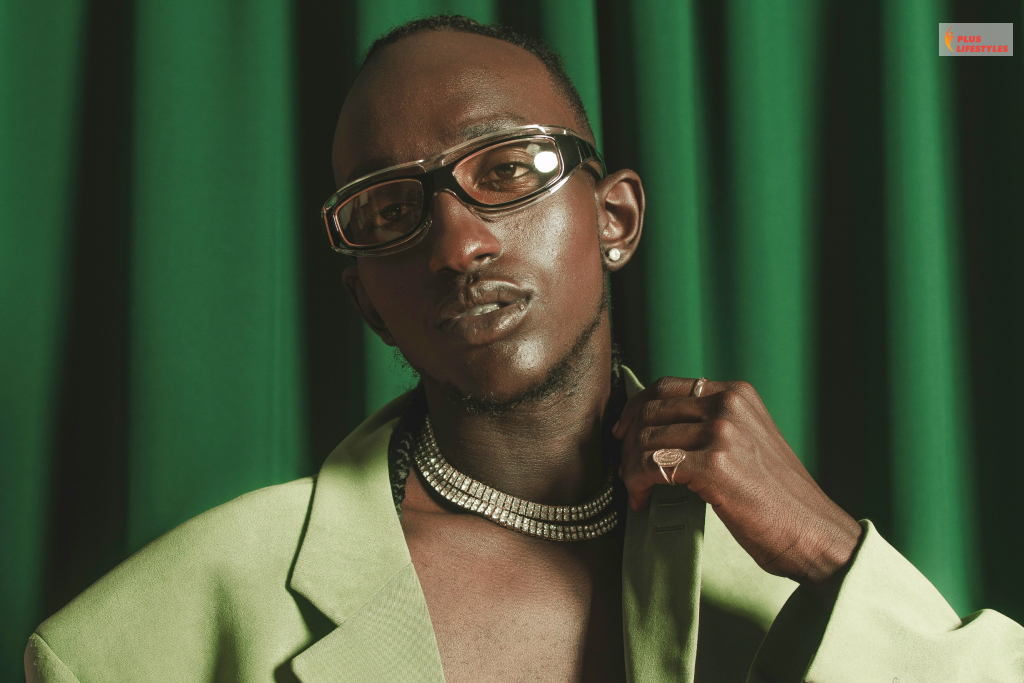
Until now, I have been going on about women and fashion. But that’s not the end of this misery. If you think men in the glamorous world do not have to go through the vicious chain of body negativity, you might be wrong.
Body-positive modeling is something that is not restricted to the feminine percentage. The T-D-H (tall-dark-handsome) formula is the foremost criterion for a budding male model to enter the industry. If they lack any of these qualities, they have to undergo a thorough screening process again.
In a recently conducted study, it was found that almost 40% of men are conscious about their body as well as weight, whereas 85% are unsatisfied with their muscularity.
The world isn’t happy; everyone wants to be somebody else in pursuit of a perfect body, and this is what we need to talk about right away.
1. Brittain-McVey
Today, the Millenials will definitely unite on “Can We Dance” by the Vamps. The band literally got us grooving to their jolly beats and subtle notes. But not all that glitters is gold.
The lead guitarist, James Brittain-McVey, shared the pressures he went through in his teenage leading him to opt for liposuction when he was only 20. When talking to a parliamentary committee addressing mental health and body image issues, he said that there was a constant struggle with anorexia.
Ever since he was a teenager, he could think of nothing but looking “a certain way.” In the media language, the perfect man is someone with a strong, muscular, and lean physique.
Consistent expectation, I would say, works a lot in the favour of sabotaging men’s mental condition. We don’t get Captain America or Superman in real and the world needs to GROW UP!
2. Robbie Williams
From the beginning, Robbie has always been vocal about his body dysmorphia and how it caused him immense trouble fitting into the real world. This male celeb has recently become a subject of body shaming.
He describes his experience as poignant and expresses the urgency of all genders to be involved in the cruel fight against body toxicity.
It was only last month when Robbie said, “I could write a book about self-loathing where my body image is concerned…” What’s even more saddening is how he describes it as “pure self-hatred” and “feeling ugly.”
In the case of Robbie, who is vulnerable to body dysmorphia, one can imagine how those comments would have a detrimental impact on his psyche and self-esteem.
3. Liam Payne
After All Of Those Voices’ grand premiere, trolls moved ahead to hit Liam Payne with unwelcoming comments. Some suggested he had undergone fat removal, Botox, and even fillers.
Just when these toxicities weren’t enough to tear him down, Cosmo surgeons began their list of how his “appearance” should be.
Whether Liam really underwent cosmetic procedures or not, whose business is that? Fashion people already have a lot on their shoulders when it comes to introducing something new to the world.
With Timothee Chalamet and Zac Efron avid speakers about body positivity in fashion, there’s not much that can bring down these celebrities’ confidence.
Significance Of Body Positivity In Fashion: Why Do We Need To Accept The Ugly Truth?
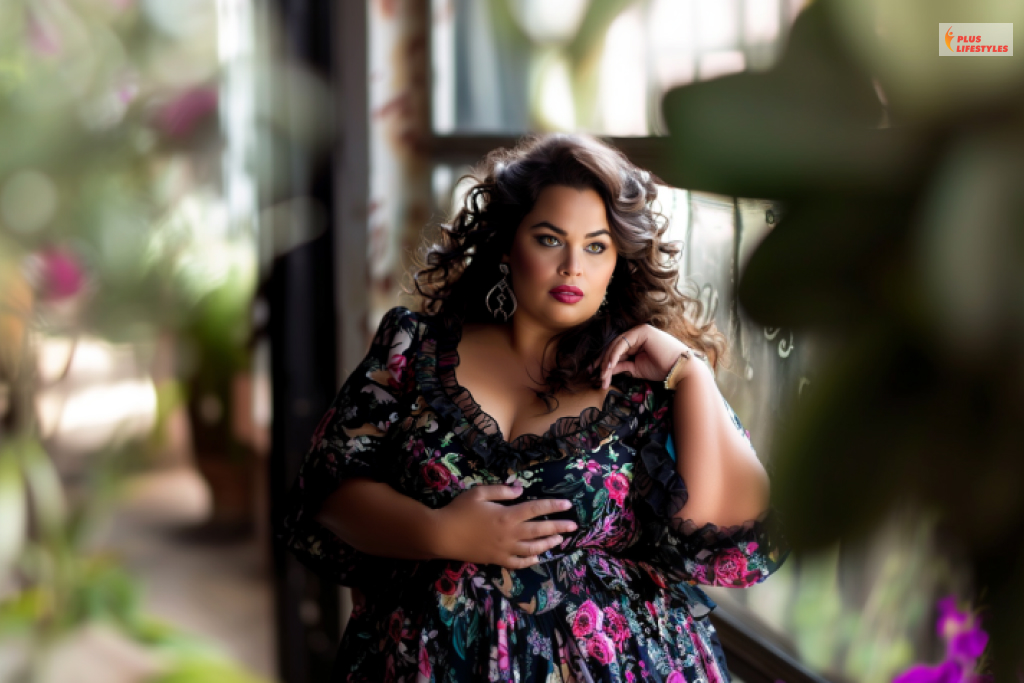
In a world full of glamour and glitz, one has to master the art of keeping up with one’s appearance. There’s no getting older, no weight increase—the idea of perfection keeps revolving.
The fashion industry was eventually created as a source of entertainment. People who belonged to royal families and didn’t know what to spend on were the major target audience.
But it seems that the industry is slowly losing all its meaning. You cannot be a part of it if you lack the substandard of having the perfect body. You’d be surprised to hear that child models are also no exception.
A Study proves 59% of women had affected self-esteem by body-shaming comments while 47% thought it resulted in eating disorders…

This statistic is proof of how body-shaming has an impact on mental health. Women in fashion often hear about obesity or gaining weight, and it definitely takes a toll on their mental health.
47% of these women say it also led to eating disorders, which eventually resulted in more weight gain. A percentage of average women in bikini is likely to receive less hate on the Internet as compared to a busty woman or one with curves.
Constant verbal attacks have made people less social and more obese as they grew up…

In a study conducted by JAMA Internal Medicine, those who encountered verbal assaults as kids about their weight are likely to become obese as adults.
When putting this figure into real-world data, we might find ourselves failing as a society. The weight-related mockery made them less anti-social in general.
They have no urge to meet new people because they constantly fear judgment. Unfortunately, celebrities who are mocked for body shaming have to end their careers no matter how good they are at their jobs.
Fat shaming increases levels of stress and anxiety among stars, and they go back to square one…

The fashion world is not easy to survive in. Those with no internal connections must overcome a plethora of challenges to make their debut in the industry.
As a result, when these celebrities and models receive hate from their followers or fans, they develop anxiety and stress.
They jump back to the position from where they emerge. Fans no longer recognize them as stars, which makes them vulnerable to ending their careers.
Although one single comment is not significant in the lives of normal people, it might have a huge impact on the lives of celebrities.
Severe trolling can lead to suicidal thoughts among fashionistas…
A woman named Lydia Dziubanek shared her story in 2014. She was obese, in an abusive relationship, and a mother of 3 boys.
She said that her overweight issues started causing anxiety and self-criticism, thereby resulting in suicidal thoughts.
“It was complete and utter hopelessness…” she adds while talking about her past days. However, the 38-year-old lady is now full of life as she has battled her obesity.
She says that the turning point in her life was when her husband began taunting her. It was then she lost 17 pounds, changing her lifestyle to a completely normal one.
Thus, it would be safe to predict that once the venomous chain of thoughts starts revolving around a person who is conscious about their body type, they begin to live life better.
Do Mainstream Fashion Industries Have An Impact On Our Concept Of Fashion?
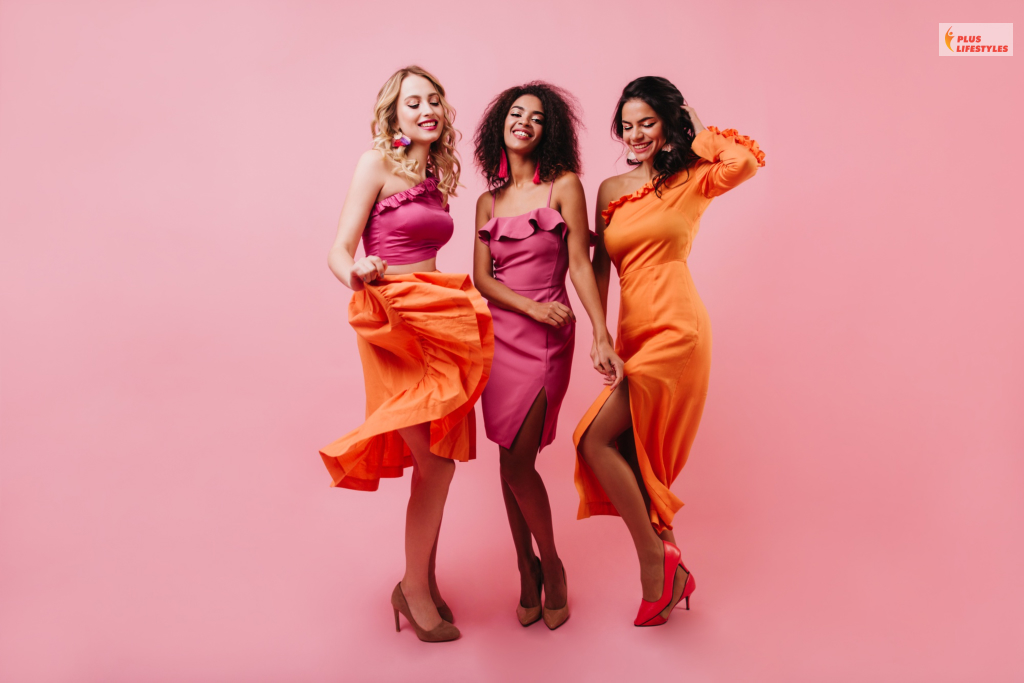
Let’s recall the days when slim, pretty girls were featured in wax advertisements. What were our thoughts then? Honestly, I thought of growing into one of those when I grew up.
I believe many of you would also feel the same way. Mainstream fashion industries have millions of followers. Whatever they present to us, we tend to get inspired by it. So yes, these media outlets have changed the way we think about fashion.
A number of experts studying this particular subject think that mass media has created superficial thoughts about the body. Men compare themselves to lean or hyper-muscular models, and so are women.
A number of studies predict that people are more exposed to idealized perceptions of fashion and appearance in numerous forms. Lastly, they belittle themselves and are not comfortable in their own skin.
When I asked some people around me about this, 4 out of 5 said yes. Mainstream fashion chains do influence people a lot. Here’s how!
The Role Of Fast Fashion…

Fast fashion refers to the industry that is quite popular for its inexpensive and trendy clothing. For a long time, this domain has gathered attention for perpetuating unrealistic standards for beauty and body.
These brands very often make use of tall, thin models, which points out that only some body types are desired by the audience. Not only does it induce a feeling of inadequacy among people, but it also shows how low we are in stooping as a community.
The emphasis of fast fashion on dynamic trends encourages consumers to keep updating their body types if they want to maintain a societal standard.
Well, guess what? Celebrities aren’t too much of a favor when it comes to fast fashion. Megan Fox, in a very recent IG post, quoted,
“Fast fashion is garbage; I’m disappointed in you…”
Body Positivity Movement Gaining Traction…
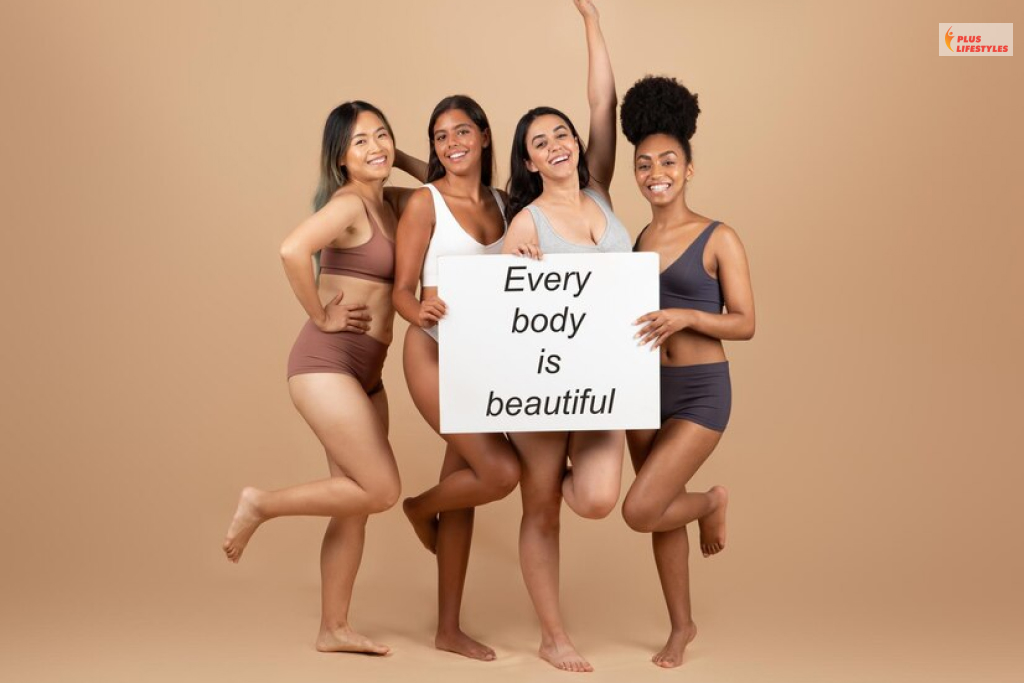
Recent years have made people aware of ongoing mental health concerns related to body shaming. This has led to the rise of multiple body positivity movements.
These movements are quite successful in welcoming diversity and inclusion. But that’s not all! They have also encouraged individuals to embrace themselves, no matter their size, shape, or skin color.
People might be talking about these movements at present. However, a 2021 research study revealed that the body-positive movement first emerged in 2012 on Instagram. More than 13 million social media posts addressing the concern grew in 2020.
People uploading morphed images of their body types were excessively trolled. There was a clear difference between what’s fake and what’s real.
Body Positive Campaigns That Influenced The Fashion World…

Keeping the incoming concerns all over the world, a number of fashion brands initiated body-positive campaigns, and here’s what happened next!
Aerie, the infamous lingerie chain, ran a campaign called #AerieREAL that promoted body inclusivity and positivity. The brand now features models of all body sizes, thus honoring natural feminine beauty.
Next was Nike in the queue with their newly launched plus-sized clothing. This featured upto 3XL sizes, and boy, the campaign got a massive hit.
With this, plus-sized models were included in the industry. Slowly, the signs of “ideal body type” are vanishing. Models like Tess Holliday have had photoshoots with different clothes highlighting their figures.
People Making Money Out Of The Body Positivity Trend: How The Online World Is Different From The “Real” World?
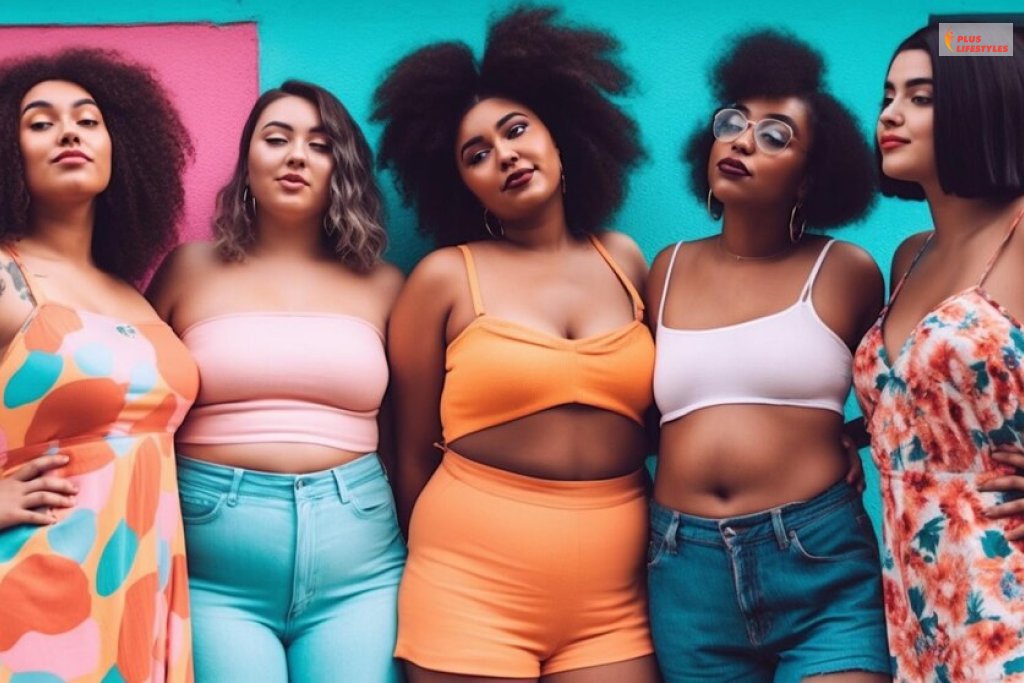
If plus-sized influencers started explaining to their followers how and why their bodies change, things would be different than now.
While body positivity might be a concern for half of the population, it is just another source of gaining money and fame for others. It is unfair to name people, or rather celebs, who have made money out of the business because it would be rather controversial.
It was as if news and television weren’t enough to reinforce the idea of a perfect body when Vogue magazines hit us straight in the face.
A Sense Of Negativity Pouring In-
When Ashley Graham appeared on the Vogue cover, we were relieved that the “diversity” issue had finally concluded. Or when Amy Schumer was featured in Glamour, weight loss discussions were no longer viable.
But do these types of performative activism for plus-sized figures make people happy about how they look? This can be a tough call.
Many fashion influencers have considered body positivity an easy, marketable goal, as Amanda Mull stated in her 2018 article. Models have promoted body positivity for one month and later shed weight in the other.
When a celeb or an influencer doesn’t want to be fat anymore, their fans have to undergo a series of mindset development to love their own skin.
As such, there is tension about what body positivity is all about. Does it really have a meaning in fashion? We’ll never know!
Misleading Information About Body Positivity On The Internet-
Every webpage defines a different struggle. It shows how everyone had a happy ending when it came to embracing their actual body type.
However, the reality is very different. When I surveyed a few people around me, they opened up about how the Internet has an altogether different idea of body positivity.
Seven out of 10 people, both men and women, accepted that there was a lot of body positivity online, and celebs were adoring bulky curvatures. But when it comes to their own body type, they want nothing but a fit physique.
Misleading or disdaining information is hard to process because the definition of beauty keeps changing.
6 Brands That Have Perfectly Covered Body Positivity In Their Approach-

Remember the Dove backlash when it promoted “whiter” beauty alongside sharing messages of diversity? With body-positive movements taking a dig at major fashion industries, many brands have performed earnest campaigns to capture its true meaning.
Let’s take a closer look:
1. Plus BKLYN
Plus, BKLYN is my personal favorite brand, mainly because of its name. The brand not only carries sizes up to 32 but also sells sizes straight out of its collection.
What sets the brand apart from others is its physical stores and how they aren’t present just “digitally.” The very first boutique opened in 2016 in NYC, offering plus-sized people a great shopping experience.
Alexis Krase, the founder, has stocks for every person willing to be “fashionable” and way ahead of their era.
2. ALL
In an economically developing country like India, fashion certainly has its own meaning. But the saddening part is that a major part of the country’s population is into body shaming in some or the other form.
In order to curb the toxicities of body shaming, ALL, the pioneer clothing brand, promotes XXL to 7XL clothing sizes. The overall collection is chic and trending, making girls comfortable in what they wear.
They promote body positivity through their campaigns of lingerie, loungewear, and casual outfits.
3. Summersalt
When we think of comfortably fitting clothes, we think of Summersalth. The brand certainly needs no recognition.
However, their clothes come in diversified shapes and sizes, thus representing various body spectrums. But what the brand did in their 2021 campaign was remarkable.
There was this one swimwear campaign that featured disabled, senior, and even post-partum models. Apart from sharing just body positivity messages, they also hinted at how the different stages of life are “completely normal.”
4. Girlfriend Collective
It comes as no surprise that people who wanted to change the definition of fashion founded Girlfriend Collective.
This brand focuses on body positivity and recognizes it as matters above body-weight issues. They have a massive range of clothing from XXS to 6XL, which certainly leaves us without words.
The brand is not only into inclusive sizing but also donates largely to progressive fashion industries. So, when we talk about body positivity norms one scale higher, this is what we mean!
5. Parade
We have a brand here that goes beyond the idea of size inclusivity being a unique quality. They show how this should be an expected quality.
The sustainable clothing brand promotes the “sexiness isn’t one-dimensional” slogan, and people involved in the product development part have a broad perception.
Plus, the brand is very much into donating 1% of its overall gains to Planned Parenthood, which helps people learn about their bodies.
6. Chromat
Have you ever encountered a brand that merges clothing with architecture? Chromat is one of them!
This inclusive swimwear production company has had people of all shapes and sizes promoting their brand. From transgender models to beauty in blacks, you get to see everything here!
The brand’s primary message is that all people, regardless of how they weigh or look, deserve a place in the fashion world.
Does Body Positivity Promote Diversity And Inclusion: Parting Thoughts

To end this discussion on a subtle note, I think self-love wins all. There’s nothing called perfection when it comes to beauty or body types.
Unless we find ourselves pretty in the most conventional manner, no brand or paid campaign will force us through that idealogy. It should come from within.
Those who are in a position to encourage others and make a difference in their lives shouldn’t refrain from doing so —kindness wins them all!
It might sound cliche or regular, but “haters gonna hate” is something one needs to strongly believe in. If we don’t love our own skin, who is gonna?
Having said that, this article should work as an eye-opener for most of us who prioritize the ideal body type over other virtues.
Continue Reading:




